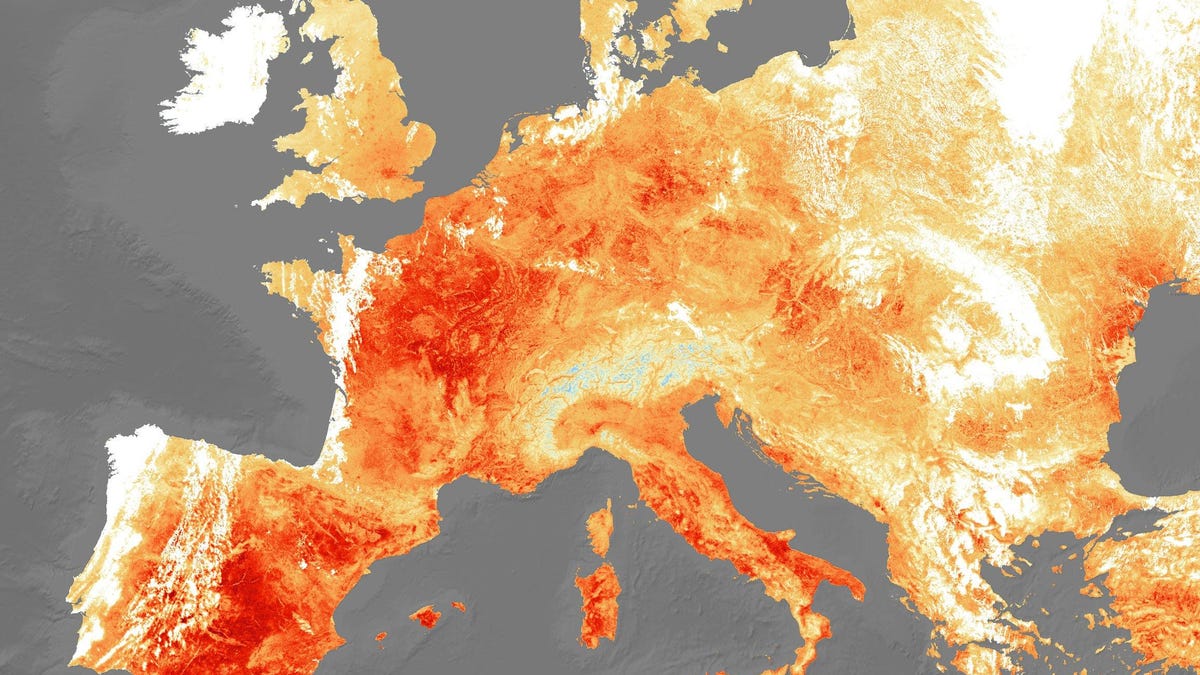Bad news: July was the hottest month on record for Earth
The meltdown is real.

The Copernius Sentinel-3 satellite view shows Europe amid a brutal heatwave on July 25.
We already knew July felt brutally hot. Greenland melted like a grilled cheese sandwich. Europe cooked like it had fallen into a hellmouth. The National Oceanic and Atmospheric Administration has now confirmed the anecdotal evidence: July 2019 was the hottest month on record for our planet.
NOAA issued its monthly global climate report on Thursday, and it was grim.
"The average global temperature in July was 1.71 degrees F above the 20th-century average of 60.4 degrees, making it the hottest July in the 140-year record," NOAA said in a statement. This broke the previous July heat record set in 2016.
The poles also felt the heat. Arctic sea ice ebbed to a record low. And Antarctic sea-ice coverage dipped below average, NOAA said, "making it the smallest for July in the 41-year record."
NOAA tweeted a graphic to illustrate the situation in the Arctic.
A new July record low for #Arctic sea ice extent was set: 19.8% below avg and 30,900 sq miles below the previous record in 2012: @NOAANCEIclimate https://t.co/gzv7jcUf2x #StateOfClimate pic.twitter.com/McApPDcab7
— NOAA (@NOAA) August 15, 2019
The impact of human-induced climate change is manifesting through weather extremes, rampant wildfires, ice loss and sea level rise. July 2019 may have set a bleak new record, but it likely won't be the last.

